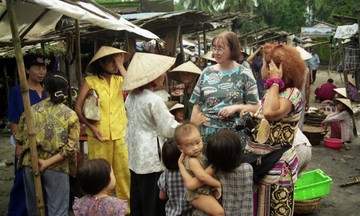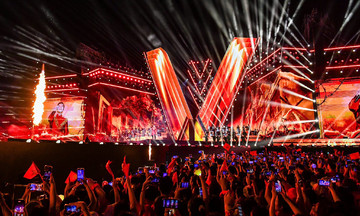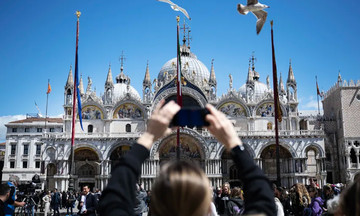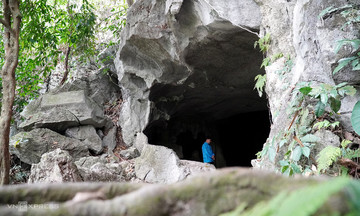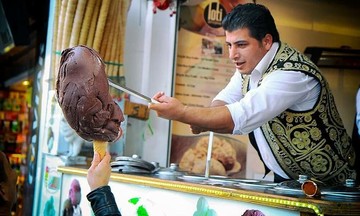Nguyen Hoang Phuc An, a graduate student in TP HCM, says his pre-trip routine involves browsing TikTok or reading Google Maps reviews to choose attractions, hotels, and restaurants. After selecting his destinations, An uses ChatGPT to create a daily itinerary and estimate the expected costs.
He says he often combines AI with social media for travel planning but still cross-references information with Google or official websites. This is due to concerns about AI's accuracy, despite requesting verified content. For example, during a trip to Da Lat with friends in 4/2025, ChatGPT suggested a free attraction with many food stalls nearby. However, An's group had to pay 40,000 VND per person, and the food stalls were no longer operating as described.
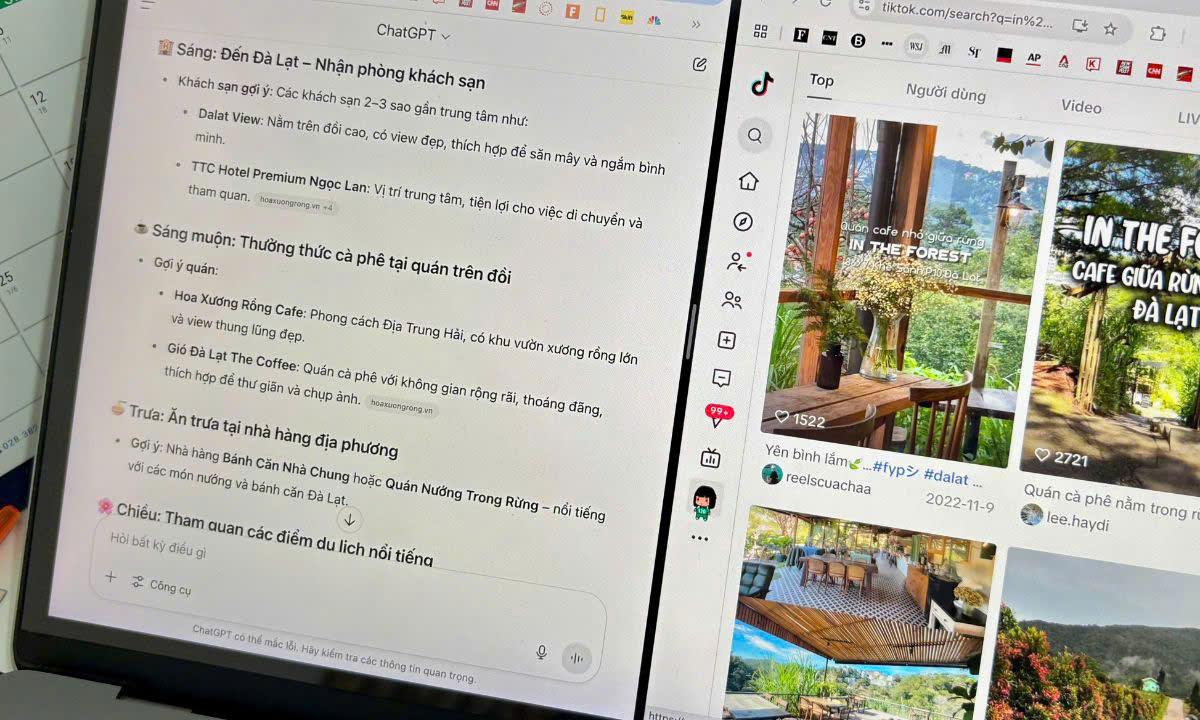 |
Gen Z uses a combination of AI and social media for travel planning. Photo: NVCC |
Gen Z uses a combination of AI and social media for travel planning. Photo: NVCC
Nguyen Ngoc Lan, 23, used AI to draft a 3-day, 2-night itinerary to Nha Trang from TP HCM. She found the results comprehensive, including transportation and accommodation options ranging from standard to luxury, with central locations or ocean views.
However, the final-year student in TP HCM notes that some of AI's suggested attractions, such as the Institute of Oceanography, Thap Ba Ponagar, Nha Tho Nui, or Hon Chong, are mainstream and suitable for first-time visitors to Nha Trang. For a more unique experience, Lan consulted TikTok, Facebook, or YouTube for unusual check-in spots. For gen Z, social media with appealing visuals, camera angles, colors, and music makes choosing easier.
According to a February 2025 report by Contiki, a travel company with over 60 years of experience specializing in the 18-35 age group, gen Z (born between 1997 and 2012) often uses AI to find trip ideas, such as exploring local experiences (56%) or hunting for travel discounts (60%). However, young people remain cautious about AI suggestions and are not ready to hand over all planning to it. Only 7% agree to let AI book their entire trip, while 77% admit they still want a human element in the travel planning process.
Dr. Daisy Kanagasapapathy, associate head of the Department of Tourism and Hospitality Management at RMIT University Vietnam, says AI tools and automated travel planning platforms often suggest popular destinations because they are "trained on large amounts of readily available popular content."
"When landmarks like 'Eiffel Tower' or 'Ha Long Bay' appear in millions of blogs, social media posts, and travel websites, those names will dominate the training data and be considered suitable by default by AI," Kanagasapapathy says, noting that AI reflects popular trends.
According to Kanagasapapathy, gen Z often seeks personalized experiences or those aligned with social values, like vegan cafes in TP HCM, zero-waste homestays in Da Lat, or indie music venues in Seoul. These suggestions are more complex for AI to identify unless there is detailed content, regular reviews, and clear tagging.
Travel blogger Win Di (real name Ho Tan Tai) says gen Z generally dislikes template trips and prefers unique experiences. According to him, young Vietnamese independent travelers find planning just as exciting as the actual journey.
 |
Wooden homestays in Da Lat attract young travelers seeking simplicity and tranquility. Photo: Tran Tri |
Wooden homestays in Da Lat attract young travelers seeking simplicity and tranquility. Photo: Tran Tri
"Each step, from researching destinations to listing must-try experiences, makes the trip more memorable," Win Di says, adding that while AI can optimize planning time, gen Z still enjoys planning independently to express their taste, personality, and knowledge.
Some users also report that AI lacks the ability to calculate real-time travel durations and update information on real-time conditions, attraction operating statuses, or ticket prices. According to Dr. Daisy Kanagasapapathy, many AI models like ChatGPT (free version) are trained on data only up to a certain point in time. Therefore, AI may be "unaware" of a recently closed restaurant, a newly opened exhibition, or changes in a venue's ticketing policy.
Despite occasional limitations, Phuc An finds AI convenient if used effectively. Besides verifying information through other reliable sources, he often inputs detailed requests to receive relevant results. Instead of general questions like "what to do in Da Lat?", An inputs commands like "plan a 2-day, 1-night trip to Da Lat for four people from TP HCM, prioritizing street food, hillside cafes with good photo spots, and hotels near the city center."
Gen Z also often breaks down information into individual questions, asking them sequentially instead of combining multiple requests in one long sentence. An says this helps AI understand each objective, providing more detailed and accurate answers, and avoiding missing information.
"Users can also ask AI to compare options, such as choosing between Mui Ne or Quy Nhon for a relaxing vacation with local seafood," Kanagasapapathy says, encouraging Vietnamese gen Z and travelers of all ages to check official tourism sources. She also suggests using AI tools with real-time data integration like Expedia, Kayak, or Klook for price checks and booking status.
Ha Phuong



